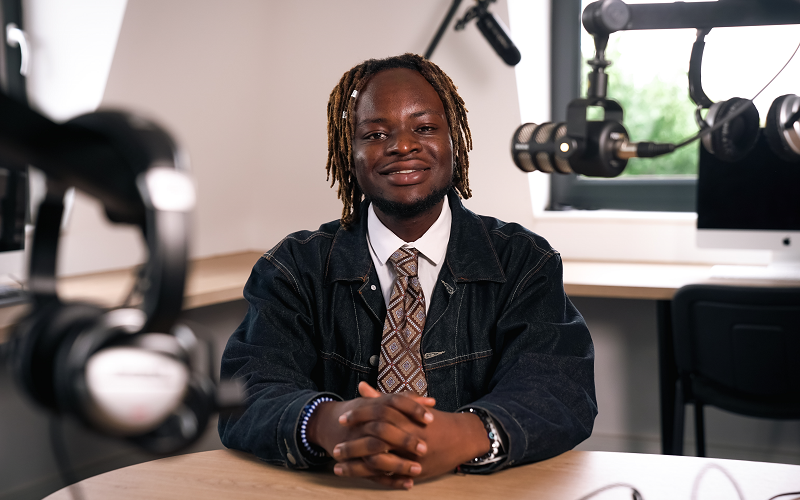How to be a Journalist is News Associates’ podcast, hosted by our very own Plamedi Mbungu.
Plamedi has interviewed journalists from across the industry about what their roles look like, their career journeys so far and what their top tips are for early-career journalists.
Catch up on what we took away from episodes four to eight here.
Read through some of the most insightful moments from episodes nine to fourteen below.
“You need that desire to talk to people…to watch, to listen.”
Reporters Without Borders UK director Fiona O’Brien said to succeed as a journalist, you need skills that stretch past just being a good writer.
Good communication skills makes interviewees trust you, so they are more likely to give you more details and information for a story.
This skill will help you create meaningful journalism.
View this post on Instagram
“If you make the effort to find a hobby that fits around, or if you find something that allows you to see your friends, it is easier.”
When asked about work-life balance, Sky Sports assistant producer Alice Reeves-Turner stressed the importance of switching off.
In many early-career jobs, you’ll be working in shifts which means your social life will look a little different to someone in a 9-5.
Carving out times in your schedule where you can see friends and family, exercise and clear your mind is essential and is worth all the planning.
View this post on Instagram
“A lot of journalism is about putting yourself in situations that maybe are uncomfortable for you, that’s how you grow, that’s how to learn.”
BBC Newsbeat senior producer Eleanor Shearwood spoke about her first time asking for someone to be interviewed for a vox pop.
Although nervous at first, she pushed through and ended up really enjoying it.
Challenging yourself keeps your journalism skills sharp and makes you adaptable – a skill every journalist needs.
View this post on Instagram
“Think about what your audience consumes, think about what your audience is interested in.”
Sky Sports digital football reporter Sam Blitz said Sky Sports is so successful because they understand their audience.
This advice is particularly relevant in your early career where you may be running your own blog, starting your own YouTube channel or getting into content creation.
Catering your content to your audience will ensure higher engagement and more opportunities.
View this post on Instagram
“We go to events and speak to people when we’re there, but we’re also slipping into people’s DMs.”
Health Service Journal senior correspondent Emily Townsend says the best way to get great stories is by networking.
Having a specialism and making it known to people in the industry means you’ll be first to cover any breaking stories or exclusive interviews.
Introducing yourself can seem scary at first but it might mean you’ll meet a future employer, colleague or contact.
View this post on Instagram
“Get used to talking to people.”
CNN enterprise writer Rob Picheta also stressed the importance of communication in journalism.
Working on CNN’s breaking news coverage of Russia’s invasion of Ukraine means that Rob has had to have sensitive conversations with people who have been impacted by the conflict.
Getting over any nerves when interviewing or researching a story means you can focus fully on asking interesting questions and creating brilliant journalism.
View this post on Instagram
You can listen to and watch our How to be a Journalist podcast episodes on Spotify, YouTube and Apple Podcasts.
Read what we learnt from our first four How to be a Journalist podcast episodes here.

